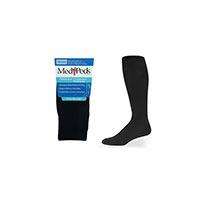
The Important Role of Pharmacists in a Diabetes Care TeamThe Important Role of Pharmacists in a Diabetes Care Team
  © Sofiia Shunkina | Dreamstime.com Pharmacists play an important role in the care of people who have been diagnosed with diabetes, as well as those who are at risk of developing the disease. Over the last decades, multiple studies have explored the role of pharmacists in the multidisciplinary approach to diabetes. This happened particularly because people who live with diabetes see their pharmacists more frequently than other healthcare professionals. Routine blood glucose testing conducted at pharmacies across the country is just an example of how pharmacists play a crucial role in a diabetes care team by helping people get appropriate medical attention. Let's have a look at how pharmacists can help patients manage and treat their diabetes by working together with other healthcare professionals such as endocrinologist, family doctors, ophthalmologists, and podiatrists. What can pharmacists do for people with diabetes? Pharmacists work as part of a multidisciplinary team that helps patients manage and treat diabetes. They also play an active role in improving the health, optimizing medication, and improving the safety of people who have been diagnosed with the disease. Here are some of the ways pharmacists contribute to diabetes care teams:
What type of diabetes care do pharmacists provide? Some pharmacies provide diabetes screening services, as they work together with local healthcare professionals and diabetes associations in order to encourage people to assess their risk of developing the disease. Moreover, pharmacists offer a wide range of products that can help people with diabetes manage their condition correctly and prevent any complications down the road. These products typically include:
The role of pharmacists in supporting people newly diagnosed with diabetes Many people who have recently been diagnosed with diabetes have a hard time coping with their diagnosis and may not be sure about various aspects of their life that they are supposed to change. Even though doctors offer support and information regarding the management and treatment of diabetes, many people find it useful to have a conversation with their local pharmacist about various aspects that have not been covered during their doctor's appointment. Pharmacists can help people newly diagnosed with diabetes registered to the local diabetic eye screening service to monitor for diabetic retinopathy and book a review appointment that can help them understand how their life needs to change to manage diabetes correctly. Moreover, pharmacists may also be the first port of call for measuring blood pressure in adults with type 2 diabetes. Most pharmacies offer a blood pressure screening service that comes in handy for people who live with diabetes and need to have their blood pressure checked often. Pharmacists are the most accessible healthcare providers, which makes them key players in the care team that manages a patient's diabetes. Pharmacists can provide counseling about how to manage out-of-range glucose levels and monitor them correctly throughout the day. They also help patients choose the best hypoglycemic management strategy and offer advice on an appropriate exercise routine and diets to complement medication management for treating diabetes. Patients can minimize or delay the complications caused by uncontrolled diabetes with prompt diagnosis and correct lifestyle changes. Pharmacists usually play a significant role in the early detection of diabetes, and they can help patients in multiple ways, not just by offering them refills for their prescriptions. In fact, pharmacists can help improve the health and quality of life for people who have been diagnosed with diabetes by educating patients to care for themselves, monitoring outcomes, and referring them to other healthcare professionals as appropriate.
| |||||||||||||||||||||||||




























